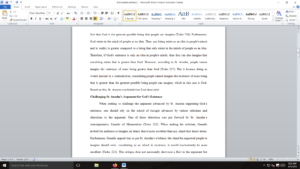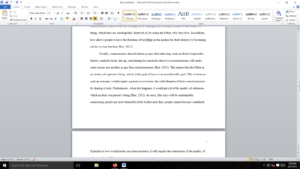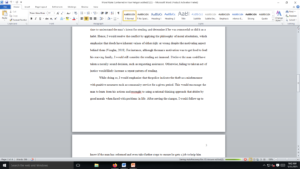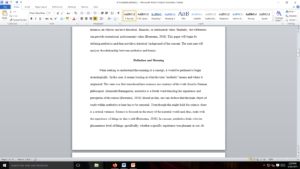Health care providers and nursing students
Your paper should include the following:
Discuss personal philosophy of nursing.
Articulate changes in personal philosophy over time.
Discuss factors that impacted change in the personal philosophy of nursing.
Submission Instructions:
- The paper is to be clear and concise and students will lose points for improper grammar, punctuation, and misspelling.
- The paper should be formatted per current APA and 3-5 pages in length, excluding the title, abstract, and references page. Incorporate a minimum of 3 current (published within the last five years) scholarly journal articles or primary legal sources (statutes, court opinions) within your work.
- . This assignment is submitted through Turnitin. The plagiarism score MUST be 20% or less
Requirements: 3-5 pages
Answer preview
Even though no individual is perfect, my strengths have significantly helped me thrive in my nursing career. Self-confidence has enabled me to face challenges along the way, while emotional maturity and self-discipline have enabled me to effectively deal equally with all the patients and colleagues for the ultimate goal of providing quality health care services. As nursing continues to advance and progress in the 21st century, increased engagement and advancement of the knowledge and expertise base of the nurses is crucial for the discipline’s survival and ensuring it effectively fulfills its mandate. Developing a personal philosophy of nursing is one of the steps in identifying areas that require advancement for efficient and effective delivery of high-quality care to patients and their families.
[1022 Words]
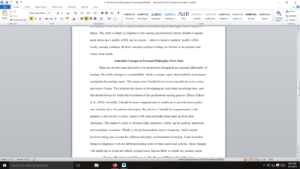
Health care providers and nursing students

